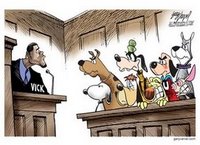And the award for timeliest social science research goes to… Tim Wadsworth of UC Boulder. In the wake of Arizona’s passage of SB1070, the toughest state ban on illegal immigration to date, Wadsworth’s research finds that cities with the largest increases in immigrants from 1990-2000 experienced the largest reductions in violent crime. Wadsworth tests an earlier argument made in Contexts (and elsewhere) by Rob Sampson of Harvard. The possible explanations for the ‘more immigrants and less crime’ connection are intriguing — the US may benefit as those with strong work ethics and perseverance select into this country, immigrants tend to move into disadvantaged neighborhoods and prevent them from becoming worse, and immigrants bring with them values that lead to more neighborhood cohesion and less crime. Work in this area is hampered by significant data problems, especially with respect to illegal immigrants (who don’t tend to volunteer their status and are difficult to find) but Sampson and Wadsworth’s findings certainly challenge the prevailing notion that ‘immigrant’ and ‘criminal’ are roles that often/usually/typically go together.
The scholarly research can be found here (gated) and the Newsweek article is here.

